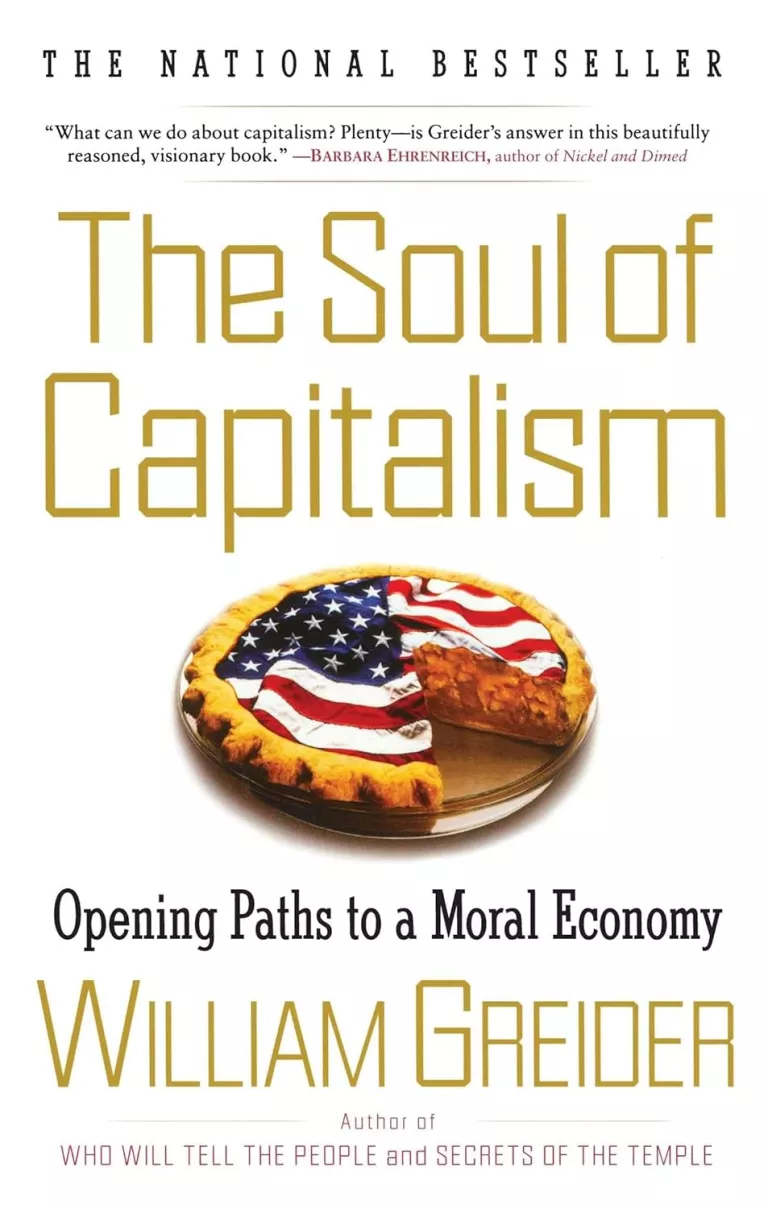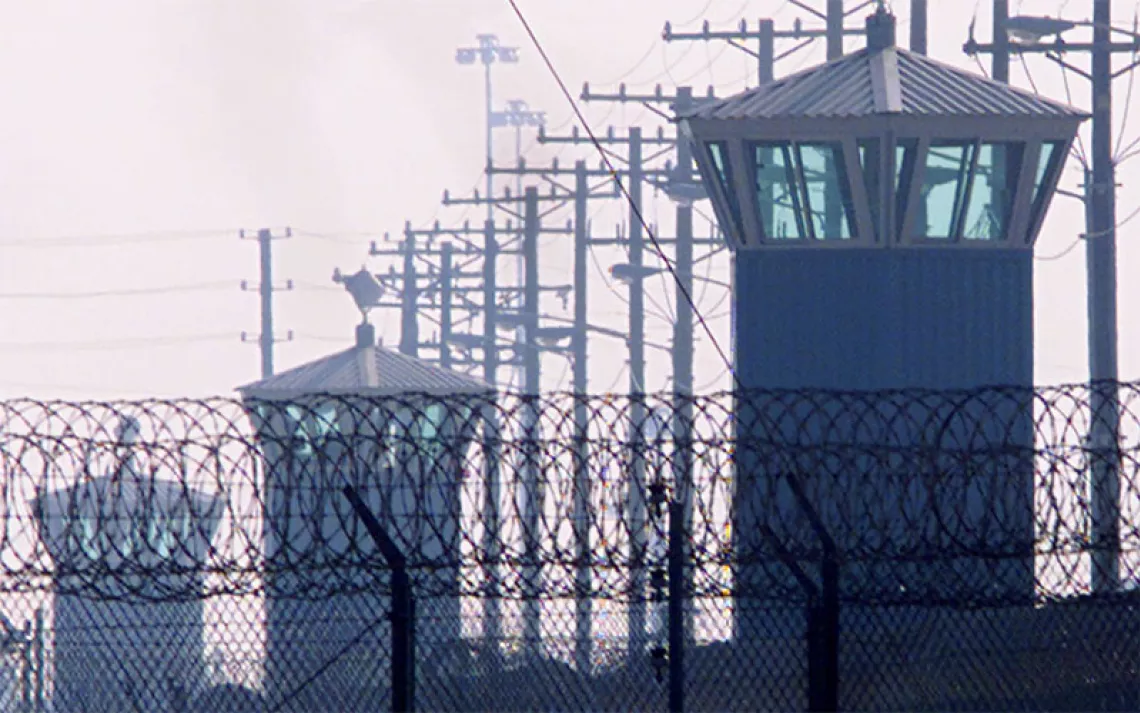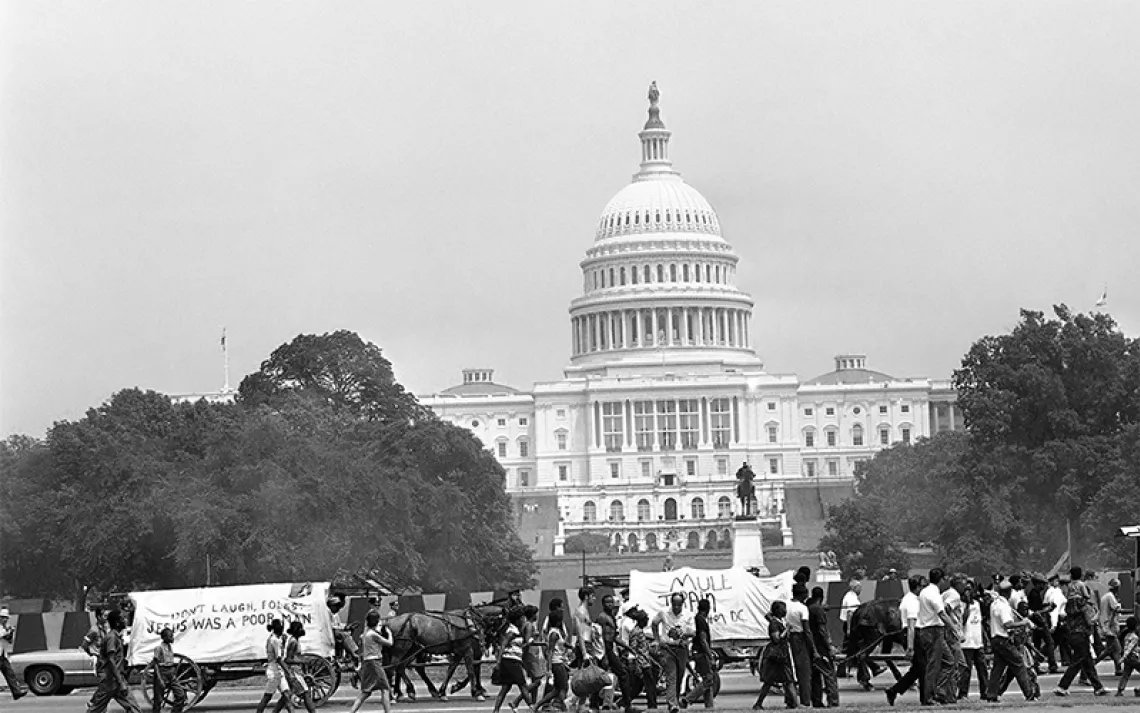William Greider: "A New Mobilization Is Just Beginning"
William Greider on reshaping capitalism

Why aren’t these the best of times? We live in a country of enormous abundance, but we’re working longer, commuting farther, and we have ever less time to spend with family and friends. Our economy, while indulging those on top, seems to require a permanent subclass of hard-core poor. We consume the earth’s resources endlessly but joylessly. Something is out of whack, and everyone knows it.
None better than William Greider, veteran reporter and columnist for the Nation, the Washington Post, and Rolling Stone, and author of numerous books detailing what’s wrong with the national and global economies. Now, in The Soul of Capitalism: Opening Paths to a Moral Economy (Simon & Schuster, 2003), he wants to remind us that capitalism could be otherwise; that we—green consumers, pension-fund activists, and innovative labor organizers, to name a few—have it in our power to reshape it into a force that works for people and for the environment.
Sierra: You’re known as a tough, sober political observer; you recently wrote in the Nation about how the Bush administration is rolling back the progress of the 20th century. How is it that in your new book you’re such an optimist?
Greider: Because I believe that there are openings for reforms within capitalism that haven’t been available for 80 years. The fact that the established order doesn’t see it yet isn’t discouraging to me; in a way it’s an asset, because people can experiment and their ideas can get some traction before the big boys come after them with clubs.
Sierra: Why is there a window now? Because of the end of the cold war?
Greider: That’s right; you’re not going to be tabbed as subversive for criticizing capitalism now. Plus the laissez-faire system we have lived with for the last 20 years is breaking down, quite spectacularly. You can see that in what happened both in the boom of the 1990s and the subsequent collapse of the stock market, and the financial crisis in the global economy. They prove the rule that markets stripped of obligations other than making money produce wild excesses and catastrophes.
For complicated political reasons, you don’t hear liberal Democrats getting up in the Senate and giving speeches about the collapse of Milton Friedman’s dream society. You don’t even hear environmentalists making that speech in a broad public way. But that knowledge is in people’s guts.
Sierra: Isn’t capitalism inherently exploitative? You seem to see it as something more elastic and open.
Greider: It’s definitely exploitative; I’m not trying to run away from that. What I’m saying is that there is nothing inherent to the functional principles of capitalism that requires it to be that way; that’s a value choice made by people who have power within the system. So you change the power relationships—between workers and companies, between big pension funds and the places where they park their billions of dollars. Right now public-employee pension funds are passive owners, but they hold nearly $2.6 trillion. This gives ordinary citizens a source of leverage they have never before possessed.
Sierra: So pension funds could, for example, insist on better environmental practices.
Greider: Exactly. We are in the midst of a deep change in the way Americans think about nature. In the last couple generations, as environmental groups and others have educated people, people responded and changed their views. It’s not an accident that most Americans now call themselves environmentalists.
Sierra: You talk about all the new, environmentally friendly industrial processes that are being developed, which would actually be cheaper if we took into account how the old ones poison the land and water. But our accounting doesn’t do that. How can we change that part of the equation?
Greider: You attack the economists as well as the politicians! Look, a lot of pricing in our economy is a purposeful, illusion-making transaction: You’re buying something because the box is sexy, or the car makes you feel like a cowboy. But suppose you now project on that product the cost consequences it has for you and your neighbors, and for society, and for your grandchildren. So you’re willing to pay a different price for a product without those consequences, and people begin to "exploit" that willingness, to use the nasty word.
The industrial system needs a thorough redesign of products and processes, reducing the damage to as near zero as possible. Europe is a counterweight to where the United States is: It is way down the road on a lot of the legislation that will drive the industrial transformation, like the laws mandating that auto companies take back and recycle cars at the end of their useful life. Europeans are convinced that it has to be done, so now it has value.

Sign up to receive Sierra News & Views
Get articles like this one sent directly to your inbox weekly.
With this action you affirm you want to receive Sierra Club communications and may vote on policy designated by the Sierra Club Board.
Look at it this way: The consumer isn’t getting any benefit out of the fact that the big brands ignore environmental or social values. The coffee companies pay producers starvation wages and consumers may get a couple pennies’ advantage. So if you can market fair-trade coffee as a niche brand, as Procter & Gamble is doing, why not for the main production?
Sierra: Part of the transformation to a "moral economy" that you envision is getting away from what you call our current "master-servant" employment relationships and moving toward things like cooperatives and employee-owned companies. But those aren’t exactly new ideas.
Greider: History isn’t a straight line. The idea of workers owning their own work—which is hundreds of years old—is eclipsed, surfaces in reform movements, gets suppressed or smashed, and comes back again in a modified form. Now I believe a new mobilization is just beginning. Today, little by little, Americans are figuring out that nothing in the fundamentals of capitalism requires a steep pyramid of power or a maldistribution of wealth and income.
I don’t think there’s any governing principle here; I think it’s about people, at a particular moment in history. What is it that gave us, starting in the 1950s and early ’60s, a chance to understand nature in a new way? What happened? It may be that in the postwar prosperity, people could step back and say, Has anyone noticed that we’re choking to death? Or it may be because Rachel Carson wrote a book that scared the hell out of everybody.
Sierra: Maybe everyone was out seeing the USA in their Chevrolet and going to the national parks.
Greider: That’s a function of affluence, right? You now have the ability to go out and see nature and experience it as a leisure activity, and you’re horrified by some of what you see. Or, you just now value it in a different way. You put a different price on this experience.
Sierra: What can we do to get this kinder, gentler capitalism?
Greider: Unfortunately, I don’t have an 800-number or a ten-point plan. There is no central command. In that sense everyone is on their own. But it’s always good to start simple: Grab a few kindred spirits and a few skeptics and don’t have a debate but a conversation about what you might do to change the standard arrangements. It’s all about doubt and curiosity. They sound so weak, but they’re the cornerstones of political action. It takes a purposeful minority with enough guts and daring and smarts to believe this could be changed, to see a different future than all these people around us—all these powerful people, all these powerful institutions—and then set out to change it. That’s the process of history.
 The Magazine of The Sierra Club
The Magazine of The Sierra Club



